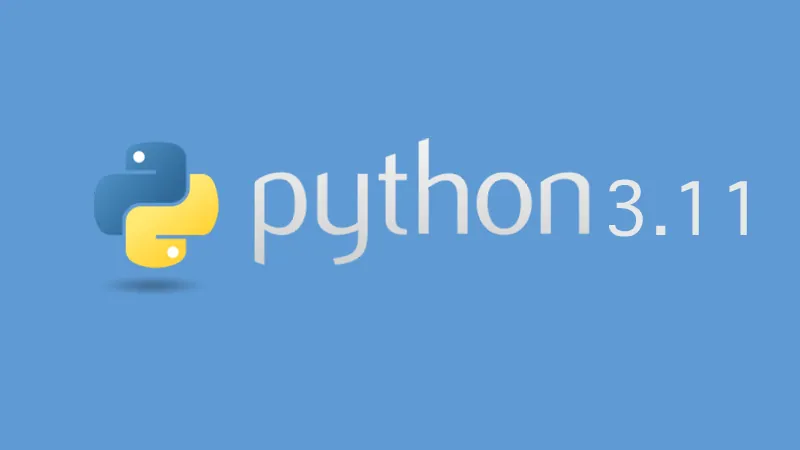Going Solo in Computer Science: Overcoming Challenges and Achieving Success through Online Learning
How to take charge of your computer science education, gain a strong foundation to overcome challenges and achieve success in computer science with these self-study tips.
Posted: Jan. 4, 2023 • 5 mins read • Author: Adams Pierre David
Table of contents

Introduction
It can be difficult but worthwhile to learn computer science by yourself. You may build a strong foundation in computer science concepts and abilities, pursue a career in the field and more with the correct tools and drive. This article will examine some of the top online resources for learning computer science, including open source initiatives, community forums, and self-paced lessons. There are several options available to help you reach your learning objectives, whether you are a beginner looking to start studying computer science or an experienced developer trying to expand your expertise. So let's start with the different possible fields in the area!
List of possible fields
Computer science is a broad field that encompasses a wide range of subfields and specialties. Some possible fields in computer science include:
- Artificial intelligence
- Computer architecture
- Computer networks
- Computer security
- Database systems
- Human-computer interaction
- Information retrieval
- Mobile computing
- Operating systems
- Programming
- Software engineering
- Computer graphics
- Data science
- Computer vision
- Natural language processing
- Robotics
- Machine learning
- Distributed systems
- Computational biology
- Computer-supported cooperative work
This is just a small sampling of the many fields within computer science. There are many other subfields and areas of specialization within the field, and new areas of research are constantly emerging as technology and society evolve. Now let's have a look at the different online resources that can help you reach your goal.
List of online resources
Here is a collection of websites that provide general information and tutorials, organized according to my preferences:
- Coursera: https://www.coursera.org
- France Université Numérique: https://www.fun-mooc.fr
- freeCodeCamp: https://www.freecodecamp.org/
- Khan Academy: https://www.khanacademy.org
- Codecademy: https://www.codecademy.com
- Udacity: https://www.udacity.com/
- edX: https://www.edx.org/
- Pluralsight: https://www.pluralsight.com/
- Treehouse: https://teamtreehouse.com/
- W3Schools: https://www.w3schools.com/
- Android development: https://developer.android.com
- Python: https://python.org
- Hyperskill: Hyperskill (Track Java)
Some of them are paid platforms to earn a certificate but still offer the course for free without certification. Note that I may, without notice, update this list to add or remove platforms that no longer meet my selection criteria. Now let's continue with the most important part of this article.
Important advice
-
Start with the basics: Make sure you have a solid foundation in the fundamental concepts of computer science, such as algorithms, data structures, and programming languages. Also, don't forget, even though a lot of people will tell you what language to choose to start, do something you like. There are no better programming languages, everything is relative to what you want to do. For example, a language may not be the best choice for android development, but the best for web application. If you really want to follow a certain path, you can use this website https://roadmap.sh/ to help you choose what to learn first.
-
Practice, practice, practice: The best way to improve your skills is to apply them through hands-on projects and exercises. A lot of newcomers make the mistake of doing a lot of tutorials. There is a huge difference between following someone doing something he did first before telling you, so you don't make mistake and doing a project by yourself. You will make a lot of mistake, but you'll learn 10 times better and faster than just follow someone else doing it. It's better doing 1 project on your own than following 10 tutorials online. To do so, you'll certainly need help when you're stuck, which is the next advice.
-
Don't be afraid to ask for help: If you get stuck on a problem or concept, don't hesitate to ask for help from fellow students, teachers, or online community members. Make google your friend, no one in the field of computer science knows everything. If you ask your question, and you can't find the answer to help you, try asking the same question with different words. Learn how to ask better questions (on stackoverflow or http://catb.org). Don't forget, google works with keywords. Use stackoverflow or any other platforms specific to the domain of your question.
-
Stay up to date: Technology and best practices in the field of computer science are constantly evolving, so it's important to stay current with new developments and trends.
-
Network and build a portfolio: In addition to learning the technical skills, make connections in the industry and showcase your projects to potential employers or clients.
-
Stay curious, be persistent and don't give up: Learning computer science can be challenging at times, but with dedication and perseverance, you can achieve your goals. Even if you have chosen your branch of computer science, you must remain open-minded to the idea of learning something new even if it is not your "field", because somehow, in computer science, everything is connected, and understanding something that is not in your "field" can help you better understand your "field".
In conclusion
It is important for those learning computer science to start with the basics, practice through hands-on projects, and not be afraid to ask for help when needed. Additionally, choose a field or specialization within computer science that aligns with personal interests and goals.
If you want to learn more about the benefits and risk of AI or what's new in python3.11, don't hesitate to click on the links.


